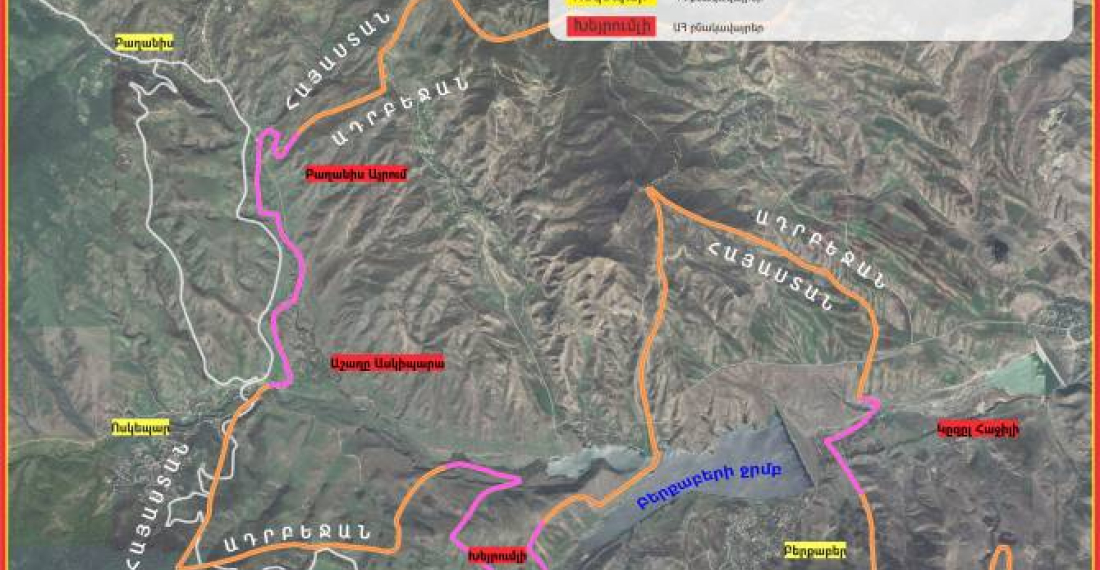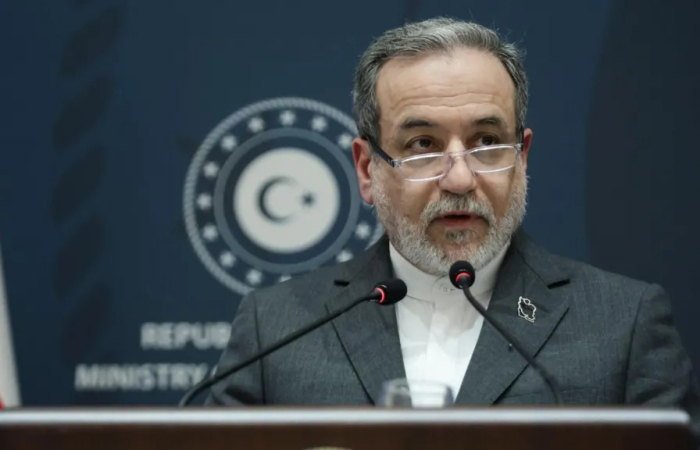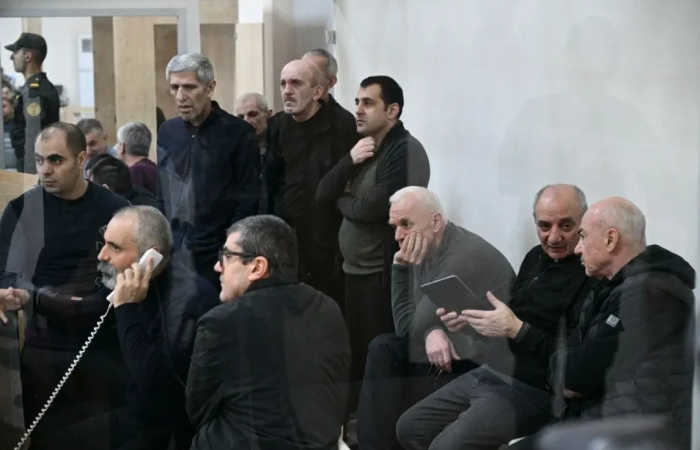Armenia and Azerbaijan last week announced they had agreed on the process of demarcation of their border in the Tavush region that will result in the return of four villages that had been under Armenian control since the conflict in the 1990s to Azerbaijan. The agreement is being seen as a milestone event that will greatly contribute to finalising the process leading towards the signing of a peace agreement between the two countries, who have been in conflict for more than three decades.
The agreement comes after months of negotiations, and controversy, including some opposition from Armenian residents in the proximity of the four villages.
On 19 April, it was announced that the eighth meeting of the Committee on Demarcation and Border Security of the State Border between the Republic of Armenia and the Republic of Azerbaijan and the State Committee on the Demarcation of the State Border between the Republic of Azerbaijan and the Republic of Armenia was held under the chairmanship of Armenian Deputy Prime Minister Mher Grigoryan and Azerbaijani Deputy Prime Minister Shahin Mustafaev.
The two sides announced an agreement based on the following points:
- At the initial stage of the demarcation process, the Parties have preliminarily agreed on separate sections of the border line, directly Baghanis (AR) - Baghanis Ayrum (AR), Voskepar (AR) - Ashagh Askipara (AR), Kirants (AR) - Kheirumli (AR) and Berkaber (AR) - between the settlements of Kizil Hajil (AU) in order to conform to the legally established inter-republican border that existed at the time of the collapse of the Soviet Union.
- It was decided that the description of the given sections of the border line will be drawn up taking into account the specification of the coordinates made as a result of geodetic measurements on the site, which will be formulated in the corresponding Protocol-description, which must be agreed and signed between the Parties by 15 May 2024
- It was agreed that the Parties will apply to their Governments to take measures for the simultaneous and parallel deployment of their border guard services in the agreed sections of the border. They also agreed that until the full completion of the demarcation process, the parts of the agreed border line mentioned in the Protocol-description will be considered demarcated.
- In parallel, an agreement was reached to complete the work on the agreement on the draft regulation on the joint activities of the Commission on the Demarcation and Border Security of the State Border between the Republic of Armenia and the Republic of Azerbaijan and the State Commission on the Demarcation of the State Border between the Republic of Azerbaijan and the Republic of Armenia by 2024. July 1 and start the process of its domestic agreement and approval in accordance with the procedures and requirements established by the legislation of the Parties' states.
- The parties have agreed that they will be guided by Alma Ata's 1991 resolution in the demarcation process. The parties also agreed to enshrine this fundamental principle in the draft of the Regulations (if in the future the Agreement on the establishment of peace and interstate relations between RA and the Republic of Azerbaijan provides for other regulations, then the relevant provisions of the Regulations will be aligned with the principles defined by the Agreement).
- It was agreed, after the approval of the Regulations by the Parties, to agree on the sequence and continue the process of demarcation of all remaining sections of the border, including issues related to enclaves and exclaves.
A protocol was signed summing up the results of the meeting.
There are of course many small details that will have to be ironed out later, but the fact that the sides have agreed the basic parameters, and especially their re-affirmation that they will "be guided by Alma Ata's 1991 declaration in the demarcation process" is a huge step forward.
No wonder that the international community in the last few days have lined up to congratulate the two sides on their success and to nudge them forward to complete the process of signing a peace agreement between them. Seasoned observers now see the signing of such an agreement as being truly within reach.
Of course, there will be those who for one reason or another will not like these developments and will try to spoil the process. Armenia and Azerbaijan must remain focused on overcoming any last obstacles, and on its part, the international community must also remain focused in helping them do so as a priority.







